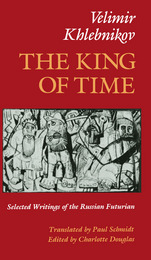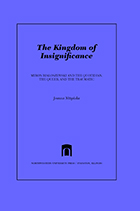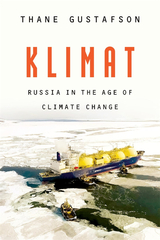4 start with K start with K

In his introduction, Terras outlines the genesis, main ideas, and structural peculiarities of the novel as well as Dostoevsky’s political, philosophical, and aesthetic stance. The detailed commentary takes the reader through the novel, clarifying aspects of Russian life, the novel’s sociopolitical background, and a number of polemic issues. Terras identifies and explains hundreds of literary and biblical quotations and allusions. He discusses symbols, recurrent images, and structural stylistic patterns, including those lost in English translation.

Velimir Khlebnikov, who died in 1922 at the age of thirty-six, is one of the great, untranslated Russian poets of this century. Hailed by his contemporaries and by later writers and scholars as the creative genius behind the Russian Futurist movement, Khlebnikov is famous more for his inaccessibility than for the excellence of what he actually produced. Even Russians are generally baffled by him.
Now, in a powerful American rendition, we are given access to the strange and beautiful world of Khlebnikov, “the word’s wild highwayman.” Trained in the natural sciences and mathematics and by temperament an artist, Khlebnikov thought he had discovered the Laws of Time and Tables of Destiny, by which enlightened humans could live in harmony with themselves and with nature. He coined the terms “Futurian” and “Presidents of Planet Earth” for himself and his friends, and he devoted all of his short, restless life to finding a language appropriate to his vision. Experiments with words became magical paths to a reinvigorated future, and produced some of the most extraordinary poems in the Russian language.
These goals and researches were variously embodied as well in stories, plays, and visionary essays in which Khlebnikov advances architectural plans for mobile cities, a new alphabet based on universal meanings of sounds, and communication by way of vast television networks. The result is poetry of startling originality, modernity, and linguistic virtuosity—a true challenge to translators and one that has been met brilliantly here by Paul Schmidt and Charlotte Douglas.
The King of Time is a representative sampling of Khlebnikov’s writings, taken from the translation of his complete works prepared under the auspices of the Dia Art Foundation. It includes many pieces, among them the full text of the astounding poem-play Zangezi, never before translated. General readers will be introduced to the legendary Khlebnikov, and cognoscenti will applaud the inventiveness of the rendering.

In one of the first scholarly book in English on Miron Białoszewski (1922–1983), Joanna Niżyńska illuminates the elusive prose of one of the most compelling and challenging postwar Polish writers. Niżyńska’s study, exemplary in its use of theoretical concepts, introduces English-language readers to a preeminent voice of Polish literature. Niżyńska explores how a fusion of seemingly irreconcilable qualities, such as the traumatic and the everyday, imbues Białoszewski’s writing with its idiosyncratic appeal.
Białoszewski’s A Memoir of the Warsaw Uprising (1977, revised 1991) describes the Poles’ heroic struggle to liberate Warsaw from Nazi occupation in 1944 as harrowing yet ordinary. His later prose represents everyday life permeated by traces of the traumatic. Niżyńska closely examines the topic of autobiography and homosexuality, showing how Białoszewski discloses his homosexuality but, paradoxically, renders it inconspicuous by hiding it in plain sight.

A discerning analysis of the future effects of climate change on Russia, the major power most dependent on the fossil fuel economy.
Russia will be one of the countries most affected by climate change. No major power is more economically dependent on the export of hydrocarbons; at the same time, two-thirds of Russia’s territory lies in the arctic north, where melting permafrost is already imposing growing damage. Climate change also brings drought and floods to Russia’s south, threatening the country’s agricultural exports.
Thane Gustafson predicts that, over the next thirty years, climate change will leave a dramatic imprint on Russia. The decline of fossil fuel use is already underway, and restrictions on hydrocarbons will only tighten, cutting fuel prices and slashing Russia’s export revenues. Yet Russia has no substitutes for oil and gas revenues. The country is unprepared for the worldwide transition to renewable energy, as Russian leaders continue to invest the national wealth in oil and gas while dismissing the promise of post-carbon technologies. Nor has the state made efforts to offset the direct damage that climate change will do inside the country. Optimists point to new opportunities—higher temperatures could increase agricultural yields, the melting of arctic ice may open year-round shipping lanes in the far north, and Russia could become a global nuclear-energy supplier. But the eventual post-Putin generation of Russian leaders will nonetheless face enormous handicaps, as their country finds itself weaker than at any time in the preceding century.
Lucid and thought-provoking, Klimat shows how climate change is poised to alter the global order, potentially toppling even great powers from their perches.
READERS
Browse our collection.
PUBLISHERS
See BiblioVault's publisher services.
STUDENT SERVICES
Files for college accessibility offices.
UChicago Accessibility Resources
home | accessibility | search | about | contact us
BiblioVault ® 2001 - 2024
The University of Chicago Press









